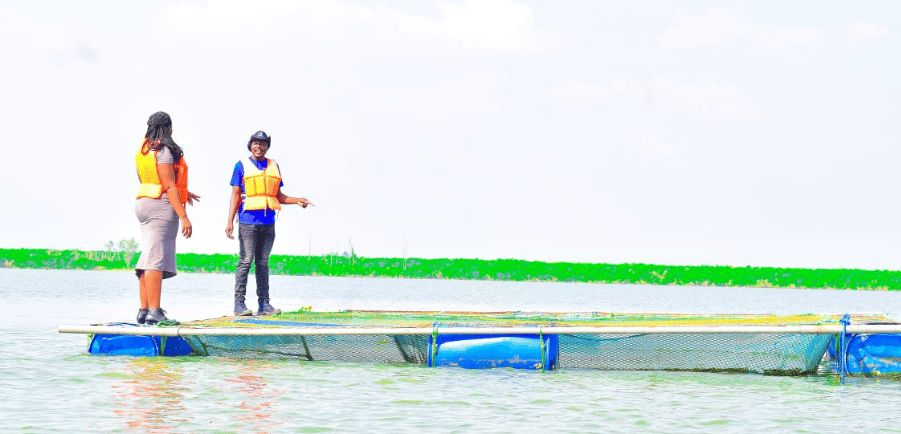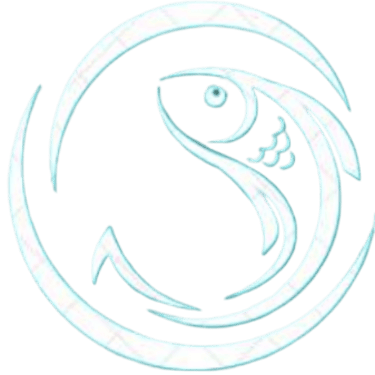Sustainable Fish Farming: Pioneering a Blue Economy Revolution for Kenya’s Future
Kenya's aquaculture sector holds immense potential. With the capacity to produce over 300,000 metric tonnes of fish annually, the country currently produces only a fraction of that—just around 18,000 metric tonnes
Peres Mikoma - Admin Operations
10/29/20244 min read


Kenya's aquaculture sector holds immense potential. With the capacity to produce over 300,000 metric tonnes of fish annually, the country currently produces only a fraction of that—just around 18,000 metric tonnes.
As the demand for fish continues to rise, driven by its affordability and importance in Kenyan cuisine, the need for innovative solutions in fish farming has never been more urgent.
AquaMnara is stepping up to meet this challenge with sustainable practices that benefit both the environment and local communities, aligning with the principles of the blue economy.
Mitigating Pressure on Wild Fisheries
The demand for fish, especially tilapia, is deeply embedded in Kenya’s culinary and cultural identity. However, this growing appetite greatly pressures wild fish populations, particularly in Lake Victoria. To ease the strain on wild stocks and allow ecosystems to recover, AquaMnara has introduced sustainable tilapia farming practices.
Our cage farms, strategically positioned in the deeper waters of Lake Victoria, provide a high-quality alternative to wild-caught fish, thereby helping to preserve the natural balance of the lake’s ecosystem. We aim to protect Kenya’s wild fisheries through responsible farming while meeting the country's dietary needs.
Technology: A Catalyst for Sustainable Practices
Climate change and environmental degradation impact traditional farming methods. AquaMnara is leading the shift towards climate-smart aquaculture. Harnessing the power of IoT technology, we have implemented real-time monitoring systems to track water quality, oxygen levels, and temperature in our fish farms. This technological innovation allows us to create optimal growth conditions for the fish, ensuring healthier harvests with minimal environmental disruption.
Our use of precision feeding systems further enhances efficiency. Traditional feeds are often wasted, leading to pollution in nearby water bodies. However, by utilizing automated feeders that deliver just the right amount of feed, we significantly reduce waste. This cuts costs for farmers and minimizes the environmental impact of our operations.
Financial Solutions for Smallholder Farmers
While aquaculture offers great promise, many small-scale fish farmers face significant challenges in accessing high-quality feed and financing for their operations. AquaMnara has developed an e-voucher system that addresses these financial hurdles. The system operates on a "Buy Now, Pay Later" model, enabling farmers to access premium feed and equipment on credit and pay back the cost after harvesting their fish.
This flexible financing approach empowers farmers to improve their productivity without the financial strain of upfront costs. Additionally, by linking the repayment to the sale of their fish, the system ensures that farmers only pay when they’ve made a profit, supporting their transition from subsistence farming to a more profitable commercial scale.
Turning Waste into Valuable Resources
Sustainability is central to our operations, and we demonstrate this by transforming fish byproducts into innovative value-added products.
Rather than discarding fish waste, we reimagine it as an opportunity to create high-value goods like fish-based cookies, collagen-rich face masks, and gelatin products. These products not only reduce waste but also tap into growing markets for health and beauty, where marine-based ingredients are increasingly sought after for their nutritional and cosmetic benefits.
This process is part of a larger global trend of utilizing fish byproducts in sectors such as pharmaceuticals, nutraceuticals, and cosmetics. Collagen and gelatin from fish skin and scales are particularly valued for their uses in beauty products and health supplements.
In some projects, peptides derived from fish waste have been shown to offer antioxidant and anti-inflammatory benefits, which can be incorporated into functional foods and wellness products. This approach enhances environmental sustainability while opening new economic opportunities in the blue economy.
Empowering Local Economies and Communities
At AquaMnara, sustainability isn’t just about environmental stewardship; it’s also about empowering people. Our operations along Lake Victoria have created over 55 jobs, providing income and stability for communities involved in every stage of the value chain—from fingerling production to distribution. This employment stimulates the local economy and fosters skill development, allowing workers to participate in a growing industry.
By providing a stable income and fair working conditions, we are also contributing to the eradication of harmful practices like "sex for fish," which has historically affected vulnerable women in the fishing communities around Lake Victoria.
Ensuring Quality and Traceability
Consumers today are more conscious than ever about where their food comes from and how it’s produced. AquaMnara is committed to complete transparency in our operations. We control the entire production process, from the farm to the market, ensuring that our fish is raised, harvested, and distributed according to the highest food safety standards.
With robust traceability systems, we can guarantee the quality of every fish that leaves our farms. This adherence to strict safety protocols, including the HACCP (Hazard Analysis and Critical Control Points) standards, gives our customers peace of mind that they support sustainable practices and enjoy the freshest, healthiest fish available.
A Vision for the Future of Aquaculture
As the global population grows and climate change continues to affect natural resources, aquaculture will play an increasingly important role in feeding the world.
At AquaMnara, we are committed to pioneering a future where fish farming is synonymous with environmental care, economic growth, and food security.
Our focus on integrating climate-smart practices, providing financial solutions, and empowering local communities ensures that aquaculture becomes a sustainable and viable source of food for generations to come.
We're excited to invite you to join us on our journey at AquaMnara, where we're dedicated to creating a future where fish farming positively impacts people and the planet. Together, we can make a difference by promoting a healthier, more sustainable future for Kenyan aquaculture and beyond.
